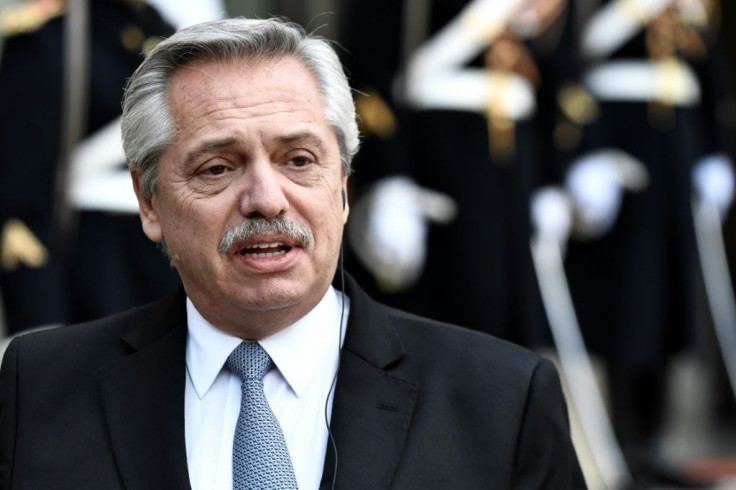IMF Due In Argentina For Debt Restructuring Talks

Recession-hit Argentina opens talks this week with a team from the IMF, seeking relief from what President Alberto Fernandez says is an unsustainable foreign debt.
With the delegation due to arrive in Buenos Aires on Wednesday for a week-long visit, left-wing groups called for public protests to press demands for a suspension of debt payments.
The government hopes to renegotiate $195 billion of the country's $311 billion foreign debt -- including a deeply unpopular $44 billion bailout loan from the Washington-based International Monetary Fund in 2018.
The aim of the mission is to "continue the ongoing dialogue regarding the Argentine government's economic program and the country's economic perspectives," an IMF spokesperson in Washington told AFP.
"The mission will also be an opportunity to learn more about the authorities' strategy to approach Argentina's debt situation."
Fernandez insists Argentina cannot meet debt payments without economic growth, hampered by inflation of more than 50 percent, as well as mounting poverty and joblessness.
"With the IMF meeting, we'll start to see what the government's economic plan is," economist Hector Rubini from Salvador University told AFP.
"The creditors need to know what chance Argentina has of paying its debt."
Economy Minister Martin Guzman is also due to present his fiscal plan to Congress on Wednesday.
"Despite its statements that it wants to pay (its debt), so far the government has lacked clarity around key political decisions," said the risk evaluation company Verisk Maplecroft.
Guzman has already met with the IMF, while Fernandez embarked on a European tour to drum up support for his proposals.
So far, the IMF and the Argentine government have both spoken positively about their exchanges.
"The IMF is showing a willingness because it wants to get paid and also in part because it contributed to this situation," said Rubini, referring to the original bailout loan agreed with former president Mauricio Macri for a record $57 billion.
When assuming power two months ago, Fernandez refused the $13 billion of outstanding disbursements, bringing the total to $44 billion.

"We don't want money to go to the IMF, we want it to be designated for a serious plan to help the poorest sectors," said Monica Sulle, a left-wing activist taking part in a street protest.
Fernandez's government has until March 31 to reach an agreement with its creditors before it will almost certainly be unable to meet its repayment obligations.
Fernandez wants to avoid another devastating default like the one in 2001, when Argentina bailed on a $100 billion debt.
"There's room to negotiate a win-win situation, but the problem is that there have been delays," said economist Marina Dal Poggetto, from consulting firm EcoGo. "The best agreement is the quickest one."
It is estimated that Argentina will need to fork out $34.3 billion in repayments and interest in 2020.
Rubini says the country will have to pay $200 billion over the next four years -- a challenge for a country with international reserves of just $44.68 billion.
Argentina has proposed making its offer to creditors in mid-March.
"It's a simultaneous negotiation with the IMF and creditors," said Rubini. "At some point everyone's going to have to get together: Argentine authorities, IMF experts and creditor groups."
He said the IMF usually expects other creditors to agree to a reduced debt repayment, but those creditors will be looking for the lender to not only accept one itself, but also take partial responsibility for Argentina's debt crisis.
Argentina has yet to miss a debt payment but did postpone some bond repayments under Macri.
On Tuesday, Buenos Aires postponed the payment of another bond that was to have come due later this week.
"This debt issue has to be resolved because either Argentina returns to growth or there will be another outbreak of social unrest," said Rubini.
© Copyright AFP 2024. All rights reserved.





















